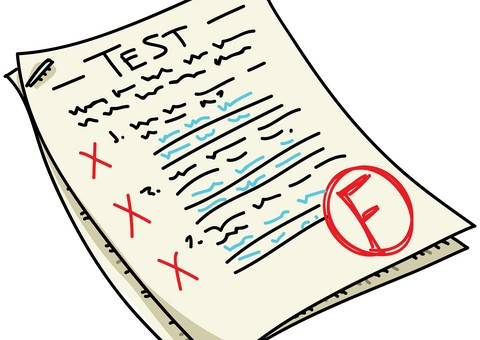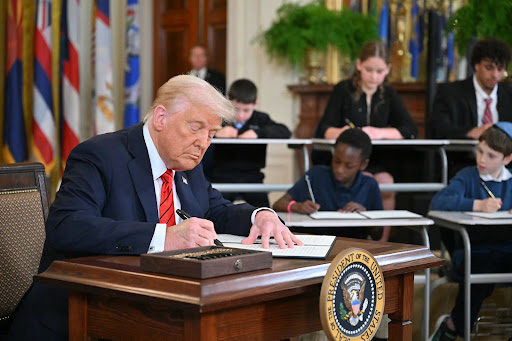In a highly competitive school like Tech, where high-achieving students vie for admission to top-tier colleges, even the smallest margin between class averages can make a difference. In an era of grade inflation, where higher grades are more prevalent, students are more likely to challenge their grades, fearing that even a small drop could unfairly impact their standing in a competitive academic environment.
Mr. Joshua Silverman, a Sociology and AP World History teacher, has observed this trend for over his nearly two decades as Tech faculty. “A decade ago, if students graduated with a grade in the low 90s, that was considered a strong GPA,” he noted. “Today, not so much.”
Despite the immense weight Tech students place on grades, few are aware of their right to challenge grades they believe to be incorrect. A recent poll conducted by The Survey found that 78% of students had never heard of the grade appeal process.
This process allows students to contest an overall class average they believe is inaccurate due to violations of the school’s homework policies, testing procedures, or classroom environments that hinder one’s ability to succeed. The statute of limitations for appealing previous term grades is the end of the following semester.
To begin the process, a student must fill out a grade appeal form, which can be found in Principal David Newman’s office (1W18). The student then provides details about the class, the grade they received, the quality of certain work, the grade they believe they deserve, and an explanation of why the grade should be changed. If a resolution cannot be reached, the teacher gives their signature and the student submits the form to the assistant principal of the relevant department.
Once submitted, the appeal moves to the Grade Appeal Committee. Composed of teachers and guidance counselors, the committee reviews each case, focusing solely on the presented facts. According to Mr. Newman, the committee reviews cases “blind,” meaning that the identities of the student and teacher are anonymous to those reviewing the appeal.
While the principal must make the final decision to grant or deny an appeal, the committee works independently to reach a verdict.
“I have nothing to do with the process,” Newman emphasized. “Assistant principals who supervise teachers aren’t changing grades. We don’t weigh in on the situations.”
Once the committee submits its findings to the principal, the school’s website indicates that “the final decision belongs to the principal.” That grade appeals are adjudicated fairly and responsibly, matters less if students remain unaware the process exists. Silverman suggests that the school does not “do a very good job of articulating all the institutions, systems, and services available to students here at Tech.”
“If it’s on the website, [students] should know it,” Newman said, underscoring a disconnect between the school’s expectations and students’ ignorance of resources designed to protect their academic rights.
Of the 22% of Tech students who responded they were familiar with the grade appeals process, only 40% of them have filled out a grade appeal form, leading to what Newman estimates as roughly 20 grade appeals processed each year.
Notably, The Survey’s poll highlighted that 89% of students believed they received an unfair grade due to their teacher’s policies.
Newman explained that, currently, “every member of the committee reads every grade appeal” to render a decision. If a surge of students began appealing grades, the Grade Appeal Committee would likely need to expand. “We’d have to have a few different teams of [a number] of members,” Newman supposed, given the likelihood that an increased caseload would strain the committee’s ability to provide each appeal a thorough examination.
Of course, grade appeals are a last resort, and student self-advocacy can be equally effective earlier on. Before reaching the committee, students engage in discussions with their teachers, and departmental oversight often plays a role in resolving disputes early on. These steps can lead to grade adjustments without formal appeals, providing opportunities to address issues collaboratively.
In Silverman’s view, the grade appeal process is about more than just rectifying mistakes. It is an opportunity for students to learn how to advocate for themselves in a system that is not always fair.
“If you’re willing to challenge an unfair grade now, you’ll be more likely to stand up for yourself in the future,” he said. As a potential step forward, Newman is currently considering including information on grade appeals directly in course contracts.








































